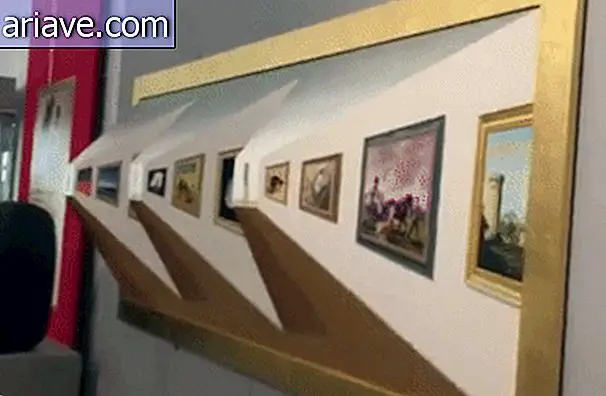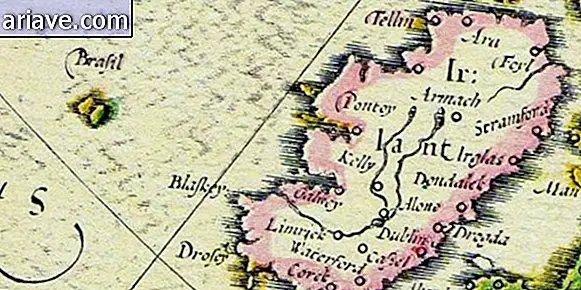Russian family lived in total isolation in Siberia for 40 years

Imagine Siberia: a gigantic region of Russia over 10 million square kilometers that for most of the year remains covered with ice and snow. To this day, this area remains one of the wastest territories on the planet, and according to an article published by Smithsonian.com, it was in this region that, in 1978, a helicopter happened to discover a family living completely isolated from the outside world.
The helicopter served a group of geologists, and originally tried to find a safe landing site for the team to explore an iron ore reserve. But after the discovery of the small human cluster, the researchers decided to shift the focus of their exploration.
Religious persecution

According to reports, the family lived in a log cabin, and the first member to appear was an elderly gentleman dressed in fiber-cloth and patchwork. The man introduced himself barefoot and with a huge beard, and although he was very scared and apprehensive during the "introductions, " he invited the geologists into the house which, surprisingly, housed four other people.
Gradually, and through numerous visits to the site, researchers were discovering the family history. The old man was named Karp Lykov, and belonged to a fundamentalist sect of the Russian Orthodox Church that was persecuted for many years. Followers had held the same precepts since the 17th century, and when the Bolsheviks seized power, they began to take refuge in Siberia to escape persecution.
So in order to escape the communists, who in the 1930s began to openly attack all religions in Russia, Karp reunited his family - at the time, his wife, two daughters and one son - the few belongings they had and some seeds, and became inmates in the forests of Siberia. Karp had two other children after moving to the area, and these two children had never had any contact with another human being.
Hermit family

The children of the Lykov family learned only what their parents taught them, and they knew of the presence of other people living tight in big cities, as well as of the existence of countries other than Russia. But his only reading materials and sources of information were some prayer books, an ancient bible, and the memory of his parents.
The region in which the family settled - in the middle of the taiga - was difficult to reach, and the last human grouping the researchers saw was more than 250 kilometers away. The clothes and shoes were made from natural fibers found in the woods, which were woven into an old loom the family owned. The few kitchen utensils got lost over time and were replaced by bark objects.
Malnutrition and hunger
Cooking was gradually made impossible by the lack of proper utensils as family members began to feed primarily on a mixture of potatoes with some grains and hemp seeds. In addition to this kind of puree, during the few months without snow they would gather wild fruits and some nuts, and hunt a few animals for meat and fur.
However, hunger was a constant problem, and the family's mother died of starvation during one of the many periods during which the Lykovs had to face without food.
Television and sin

The news brought by the researchers caused much surprise to the Lykov, who did not believe that the man had stepped on the moon and went unnoticed by World War II. However, they had noticed the presence of strange stars crossing the sky faster - the satellites! And what surprised them most was a plastic packaging that, as Karp described it, was a wrinkling glass.
After many visits, geologists were able to convince the family to visit their camp. On the rare occasion they were there, they surrendered to the irresistible power of a fantastic object: television. According to the researchers, because watching TV was considered a sin, the family prayed later - or even during the programs - to apologize for the serious transgression.
Voluntary isolation

After so many years of isolation, the children spoke in a time-distorted, fully intelligible language. They had never seen bread in their lives, and the only member who could be understood was old Karp. The first "gift" they accepted was some salt, and later the Lykovs began to incorporate some amenities provided by geologists, such as cutlery, seeds, paper and pen, and even a flashlight.
Unfortunately, in 1981, shortly after being discovered by Russian researchers, three family members died - two from kidney failure, possibly due to poor diet, and the third from pneumonia, probably caused by exposure to new friends. There is still one member of the living family left: one of the daughters, who, despite being over 70 years old, still lives in the same place from which she refuses to leave.











